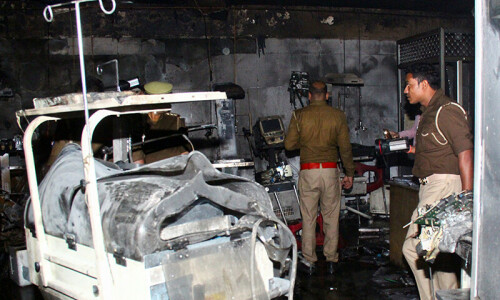MANY post-colonial societies continue to grapple with the monster of national disintegration, ethnic polarisation and discrimination on the basis of region, language and creed. Pakistan is one such country.
Those at the helm of this state, within a few years after its creation, started to employ shady tactics to suppress vocal, progressive and nationalist forces for the consolidation of their power. Ethnic and sectarian politics became the norm in Pakistan. In this milieu, our people need to ponder on the following:
The state has alienated the Baloch people by adopting securitised policies and applying high-handed tactics. Some of the state’s organs practise a policy of pitting religious and liberal forces against each other on the basis of sectarian, doctrinal and racial orientations.
In Pakistan, ethnic groups with lesser representation in the civil and military bureaucracy, religious minorities, and the few voices that dissent from the majority narrative are always at the receiving end of what the establishment and radical religious outfits say is the state narrative. They protect each other’s interests. Both — egregiously mistaken in their belief — consider themselves the sole custodians of Pakistan’s territorial and ideological frontiers.
The pre-meditated murder of Naqeebullah Mehsud speaks volumes about state-sponsored violence. These non-constitutional acts pose an immense threat to the bonds that bind the unity of this federation.
Our institutions would do well to remember that if you sow the wind, you reap whirlwind. The people will eventually retaliate and resort to ethnic, communal and racially-motivated violence as a means of settling scores with the state. The recent incidents of cold-blooded killing in Balochistan of Punjabi labourers are a case in point.
It’s time the state ensured democratic and inclusive assimilation of all segments of society.
Saaed Ullah Khan Wazir
Islamabad
Published in Dawn, February 20th, 2018








































